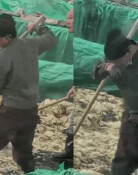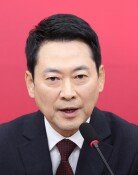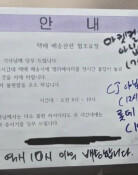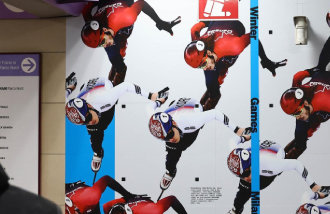Experts Blast Selective Press Funding
Experts Blast Selective Press Funding
Posted July. 07, 2006 03:28,
There is an incessant dispute over whether the Korea Commission for the Press (led by Commissioner Chang Haeng-hoon) decision to give 15.7 billion won in support to 12 newspaper companies was appropriate. The dispute stems from calls that the selection of the newspaper companies was not fairly done.
Of the 15.7 billion won, 15 billion won which is to be spent on new facilities is being loaned at three percent annual interest and is to be repaid in three years with a twoyear grace period. The 700 million won is direct business expenses that do not have to be repaid. Regarding the criticism that it unfairly supported pro-government newspaper companies and Internet news companies, and used very subjective criteria in selecting the beneficiary companies, the Korea Commission for the Press released a statement on Wednesday saying that it had selected the companies based on objective criteria.
Unprecedented support to individual newspaper companies-
Against the criticism that the newspaper companies that received public funds will not be able to regulate and criticize the government, the Korea Commission for the Press pointed out that newspaper companies have enjoyed benefits such as exemption from value-added taxes, discounts in postal fees, reduced taxes upon acquiring a cylinder press, and tax exemptions on reporting costs in the past. Its argument is that because the newspaper companies have received funds to date, additionally aided funds will not hinder the companies from playing a role of keeping an eye on political power.
Journalism professors argue that giving support to individual companies is far different from giving support to the whole industry. They say that aiding the whole newspaper industry does not affect the tone of the newspaper companies in overall, but aiding individual companies can affect their tone.
Honorary journalism professor Chong Jin-seok of the Hankuk University of Foreign Studies says, Many countries offer public support to the newspaper industry in general due to the public nature of newspapers. It is very rare that the government reviews individual newspaper companies and discriminate among companies.
The selection criteria is unclear-
The Korea Commission for the Press announced that it reviewed newspaper companies based on criteria stated in the newspaper law, such as the installment and operation of the editing organization, social responsibility, and upholding of public needs. The Constitutional Court dismissed the articles mentioned in the constitutional petition on June 29, saying that these articles are unbinding because they are either voluntary articles or declaratory clauses. Therefore, if the clauses that were deemed to be voluntary and declaratory play a key role in selecting beneficiary companies, the clauses can be questioned in a constitutional petition again.
Regarding the social responsibility criteria and upholding of public needs criteria, the Korea Commission for the Press chose the following items; whether a newspaper company sets off social controversy by dishonoring or intruding on others rights, whether it sets off regional prejudices, and whether it was criticized by citizens organizations or scholarly circles for being biased. The Korea Commission for the Press said that it made its judgment by reviewing comments by the Korea Press Ethics Commission and mediation and correction requests by the Press Arbitration Commission.
There is much disapproval to these criteria; The criteria is not clear in that how much controversy stroked would exclude a newspaper company from the selections. Moreover, it is not easy to be unbiased in the situation that it is not uncommon for some citizens organizations with biases to attack newspaper companies. Experts say that the review of press arbitration is not objective because government organizations apply for press arbitration in bundles against newspaper companies that criticize government policy.
The true identity of Korea Commission for the Press -
The Korea Commission for the Press claims that it is not a government organization, but an independent organization in which people who were recommended by the ruling and opposition party, the Korean Association of Newspapers, journalism circles, and citizens organizations participate. However, it cannot be free from government control because the minister of Culture and Tourism nominates three Korea Commission for the Press members and gives commissions to all the members. Aside from the three recommended by Korean Association of Newspapers, journalism circles and the opposition party, six are pro-government members, giving the government a say in commission decisions.
Jung-Bo Suh suhchoi@donga.com







